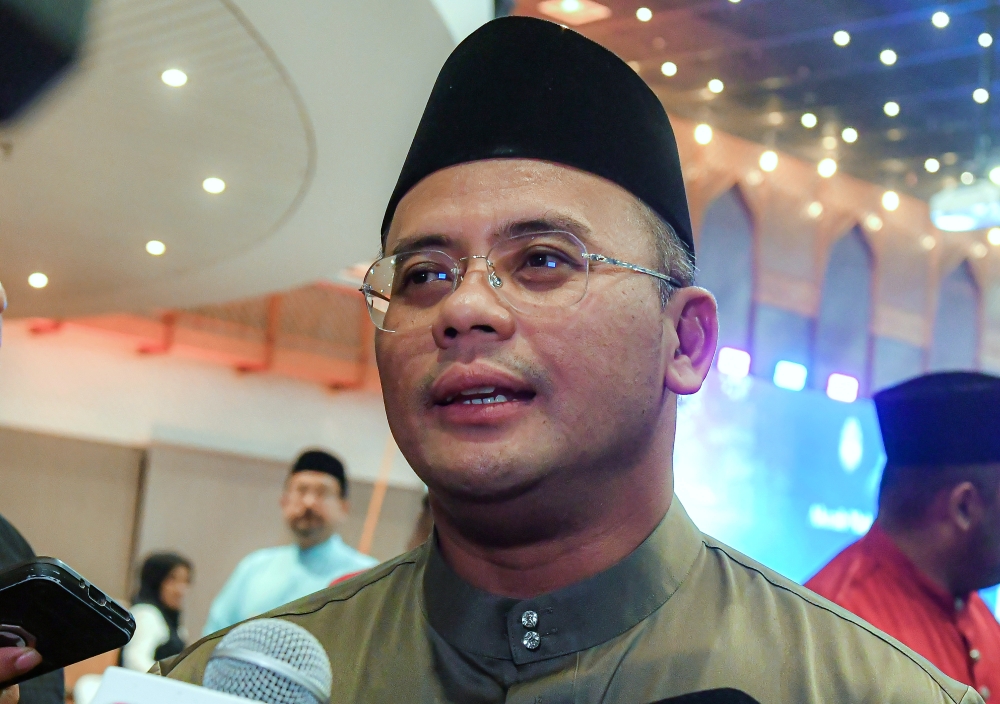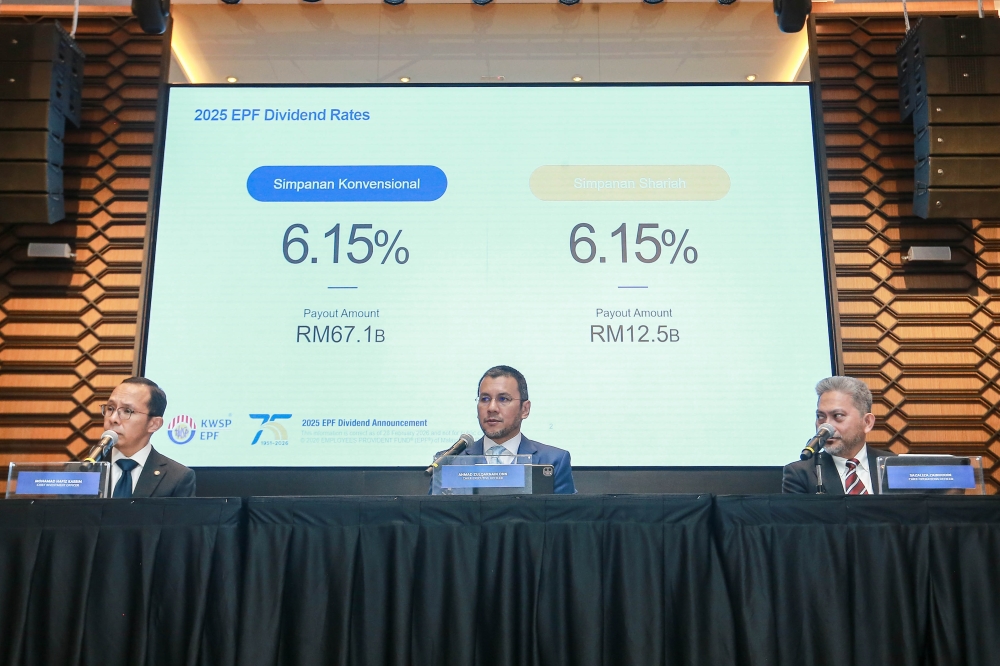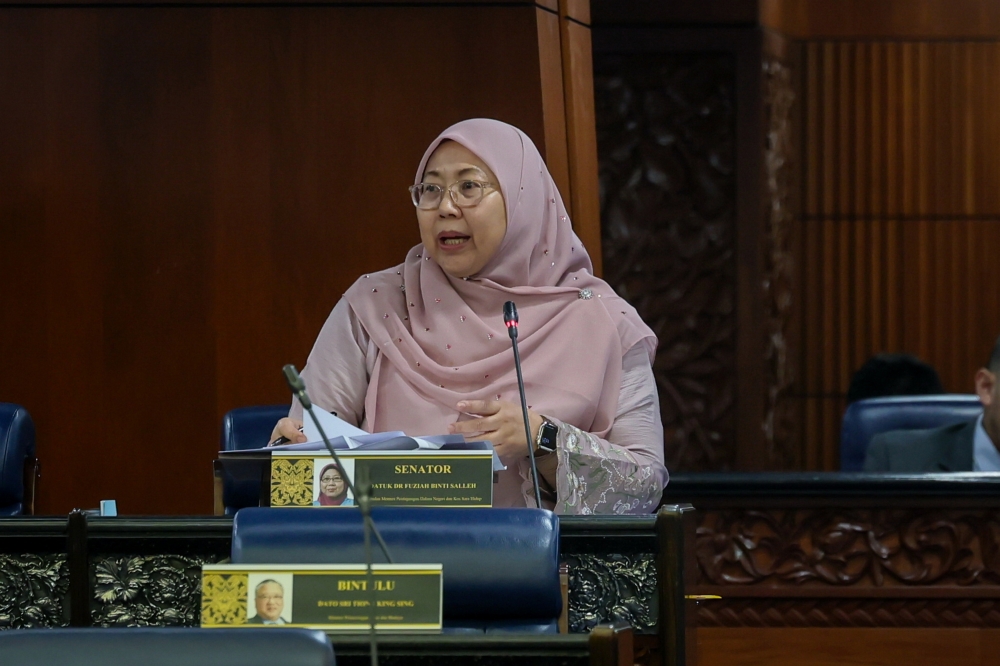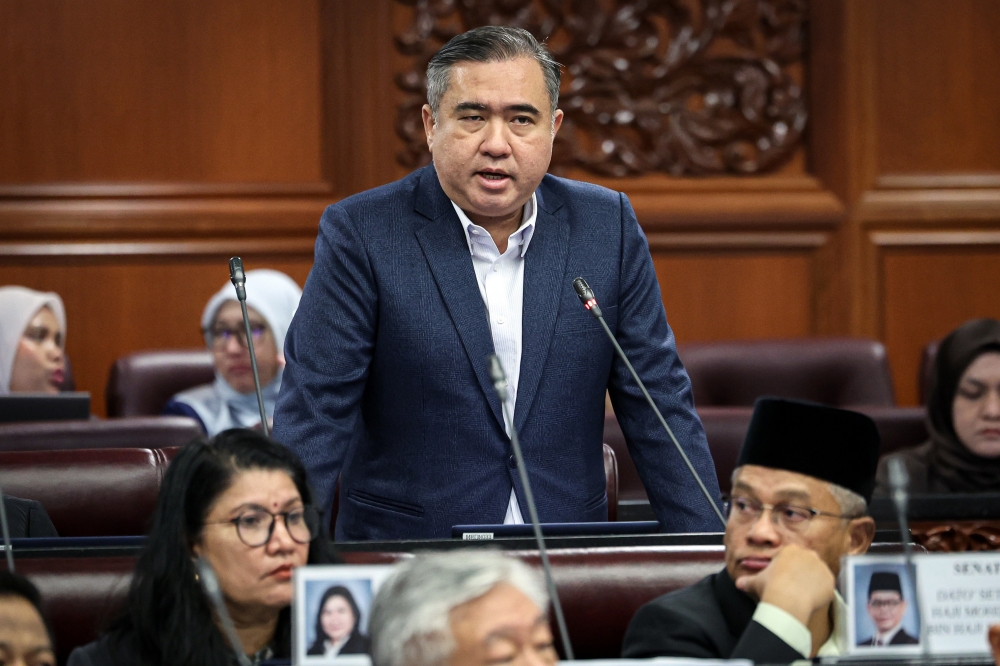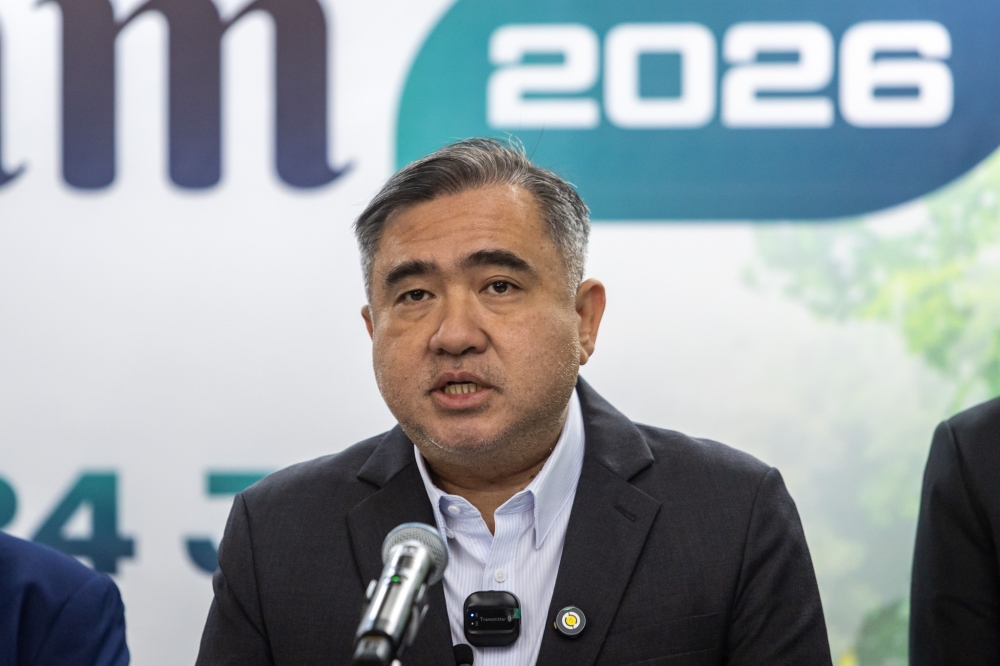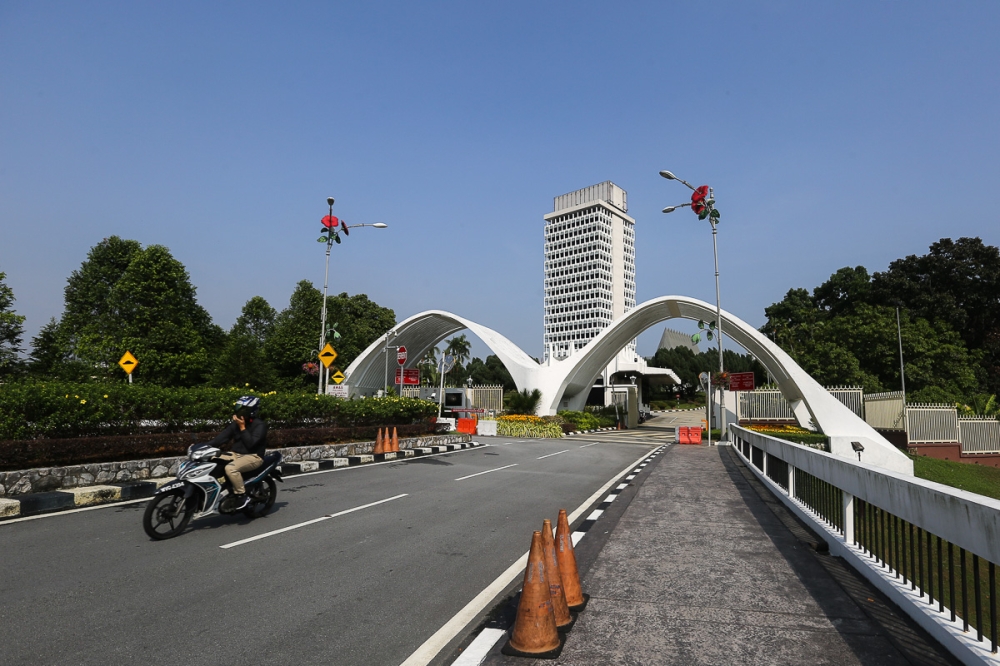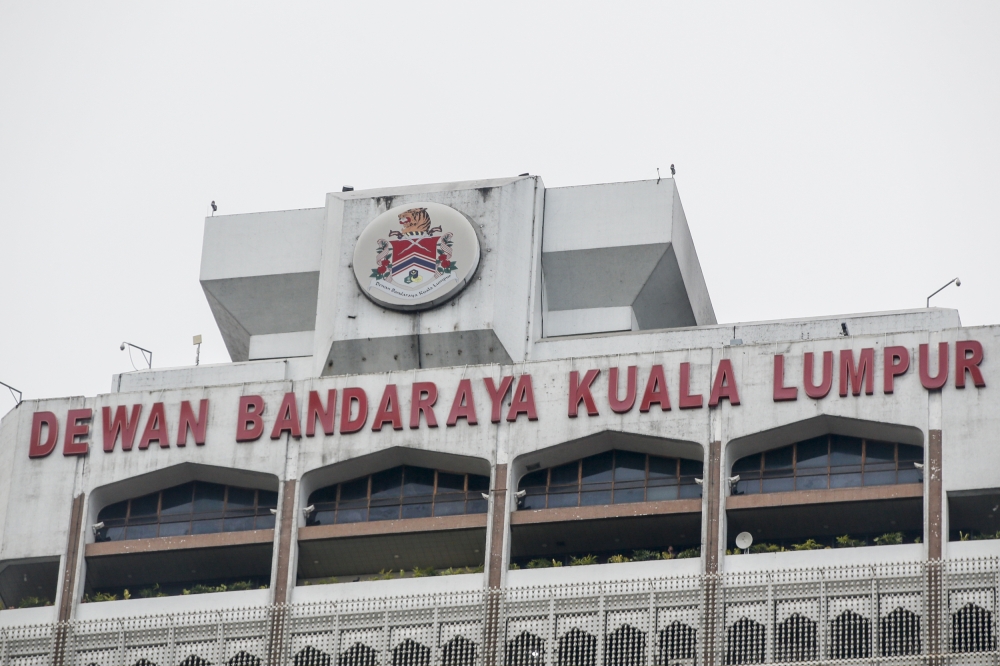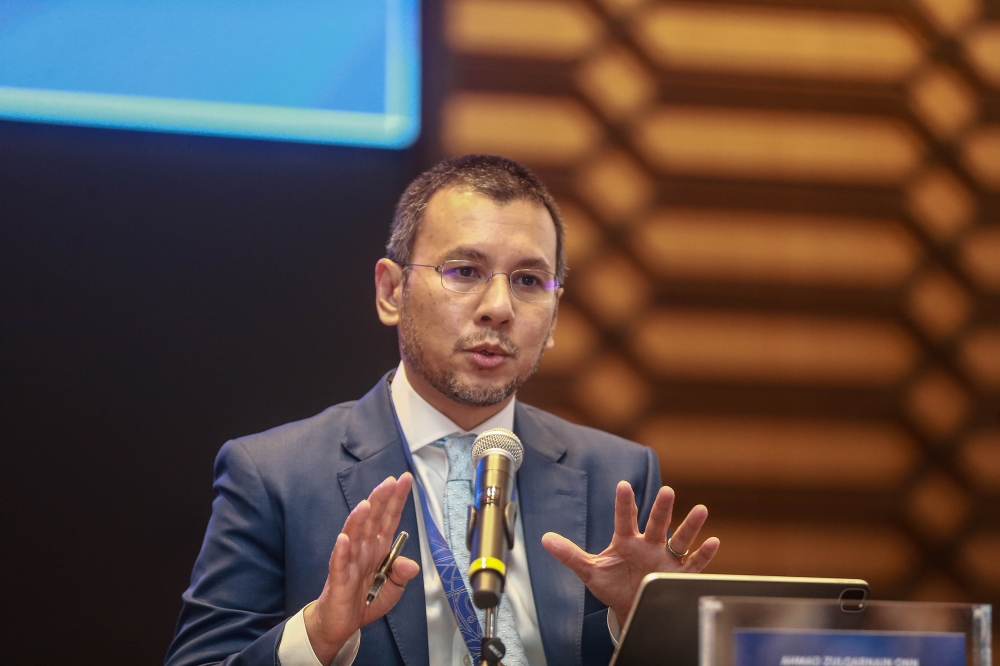OCTOBER 1 — The focus of legislative business when Malaysian Parliament resumes sitting on 19 October 2015, apart from the 2016 National Budget, would be, who will bring forth either a confidence motion or a no-confidence motion towards Prime Minister Datuk Seri Najib Razak. The following questions are what everyone has in mind and being concerned, regarding the Members of Parliament (MP) in the October Parliament meeting:
1. Will Najib propose a confidence motion for himself, in order to address the crisis of confidence he is facing?
2. Will other members of the Cabinet propose a confidence motion for Najib?
3. Will the Barisan National (BN) backbenchers, either individually or collectively, propose either a confidence motion or a no-confidence motion towards Najib?
4. Will the non-BN MP, either individually or collectively, propose a no-confidence motion against Najib?
5. If neither of the above actions occurred, or such action is being vetoed in the Speaker's office, will the Parliament witness a historic moment of the Budget being defeated?
About 40 years ago, on the next day after the second Prime Minister Tun Abdul Razak died of illness in London, which was 15 January 1976, the father of the current Vice-President of Umno and also the Defence Minister Datuk Hishammuddin Hussein, that is, Tun Hussein Onn, took over as the third Prime Minister in a hurry. In that year, during a Parliament meeting, a motion regarding the new Prime Minister Hussein Onn was being debated and passed.
This is the first confidence motion for the Prime Minister, in the history of the Malaysian Parliament. It was not the Prime Minister himself who proposed the motion, but a BN Senator, Wan Ibrahim.
This is the summary of the motion:
The Dewan congratulates Yang Amat Berhormat Datuk Hussein bin Datuk Onn for being appointed by His Majesty the Yang di-Pertuan Agong as the third Prime Minister of Malaysia, and gives him full support and cooperation for him to fulfil his great responsibility as the Prime Minister.
This motion was successfully brought up to the Parliament under sections 13(1), 25, and 26 of the parliamentary Standing Orders, and was being passed with 4 absentees and 20 MPs participating in the debate.
On 2 August 1973, then-Deputy Prime Minister Tun Dr Ismail died of heart attack. The biographer of Dr Ismail, Dr Ooi Kee Beng, said in the book The Reluctant Politician: Tun Dr Ismail and His Time that, as Dr Ismail died, then-Prime Minister Abdul Razak "surprised many" by appointing Hussein Onn as the Deputy.
At that time, Malaysian Chinese Association (MCA) was demanding Abdul Razak appoint then-President of MCA, Tan Siew Sin, as the Deputy Prime Minister II. Tan Siew Sin "was deeply disappointed on being told" that Hussein Onn was to be appointed as Deputy Prime Minister, and questioned "in disbelief": “What about me?” In the following year, Tan resigned as President of MCA and Finance Minister of the Abdul Razak cabinet, for health reason. Until now, MCA has not only yet to taste the glory of one of its own being appointed as Deputy Prime Minister, but also lost the Finance Ministerial post, a key cabinet post.
In less than two and a half years after Dr Ismail's death, Abdul Razak died unexpectedly. Under the trend, Hussein Onn took over as the Prime Minister in a hurry, and took up the positions as Finance Minister, Defence Minister, and Minister of Coordination of Public Corporations (Menteri Penyelarasan Perbadanan Awam). In order to enhance the prospect of legitimate rule, Hussein Onn decided to do it through a parliamentary motion of confidence, and that was a wise move.
By looking into the background of Wan Ibrahim, who brought up the motion, one can see how much Hussein Onn, who was carrying four cabinet posts at the same time, attached importance to this motion. Wan Ibrahim is a descendant of a noble family in the history of the Pahang Sultanate. Having the pedigree implanted in the local political culture, and on the fact that the Parliament of Malaya/Malaysia had only 17 years of history at that time, having a representative of the noble class with close historical ties with the royals to propose a confidence motion in the Parliament would show that Hussein Onn had a certain requirement in handling details.
Based on my limited local reading experience, out of all the Prime Ministers of Malaysia in history, the historical status of Hussein Onn is given the least importance, and there is less discussion by the academics and the public on his political life during his rule compared to other Prime Ministers. Perhaps because of this, if not because of Najib facing crisis of confidence today, this historic moment of the Parliament in 1976 would not attract attention.
After 32 years, everyone in the country is still immersed in the year of the political tsunami, when the first female Leader of the Opposition of Malaysian Parliament, Dr Wan Azizah Wan Ismail, together with another 14 MPs from Pakatan Rakyat, proposed a no-confidence motion against then-Prime Minister, Tun Abdullah Ahmad Badawi.
This is the summary of the motion:
We are proposing a motion of no confidence against Prime Minister Datuk Seri Abdullah Ahmad Badawi, because of the way he and his cabinet ministers handled the national executive tasks, had caused the people to lose confidence on the integrity of the government.
The motion had no chance to get into the Dewan, as it was being vetoed in the Speaker's office under section 18(7) of the Parliamentary Standing Orders, on the grounds that the bill stated that a vote to be taken on the no-confidence motion but the provisions it was filed under was to seek "negotiation".
However, under sections 27(3) and 45(1) of the Parliamentary Standing Orders, it is still possible to table a motion of no confidence against the Prime Minister. Standing Order 27(3) states that, "except as provided in Standing Order 43 and in paragraph (5) of Standing Order 86 and 26(1), not less than fourteen days’ notice of any motion shall be given unless it is in the name of a Minister, in which case seven days’ notice or, if Tuan Yang di-Pertua is satisfied upon representation to him by a Minister that the public interest requires that a motion should be debated as soon as possible, one day’s notice shall be sufficient."
And a resolution thereof, is provided under the Standing Order 45(1), which states that "subject to the provisions of Clause (1) of Article 89 of the Constitution and Clause (3) of Article 159 of the Constitution and these Orders, the House shall, in accordance with the provisions of Clause (3) of Article 62 of the Constitution take its decision by a simple majority of members voting; and Tuan Yang di-Pertua or any other person presiding shall cast his vote whenever necessary to avoid an equality of votes, but shall not vote in any other case provided that where Tuan Yang di-Pertua is a member of the House by virtue only of paragraph (b) of Clause (1A) of Article 57 of the Constitution, he shall have no casting vote in the House or in any Committee thereof."
Following the crisis of confidence Najib is facing now, the Speaker of the Dewan Rakyat, Tan Sri Pandikar Amin, said that the Standing Orders of the Parliament of Malaysia has not stated that an MP may propose a no-confidence motion against the Prime Minister. By reviewing two of the (no-) confidence motions that occurred in the history of the Parliament of Malaysia, it shows that Pandikar's statement can be contested.
* Ooi Heng is executive director of the think tank Political Studies for Change (KPRU - Kajian Politik untuk Perubahan).
** This is the personal opinion of the writer and does not necessarily represent the views of Malay Mail Online.

